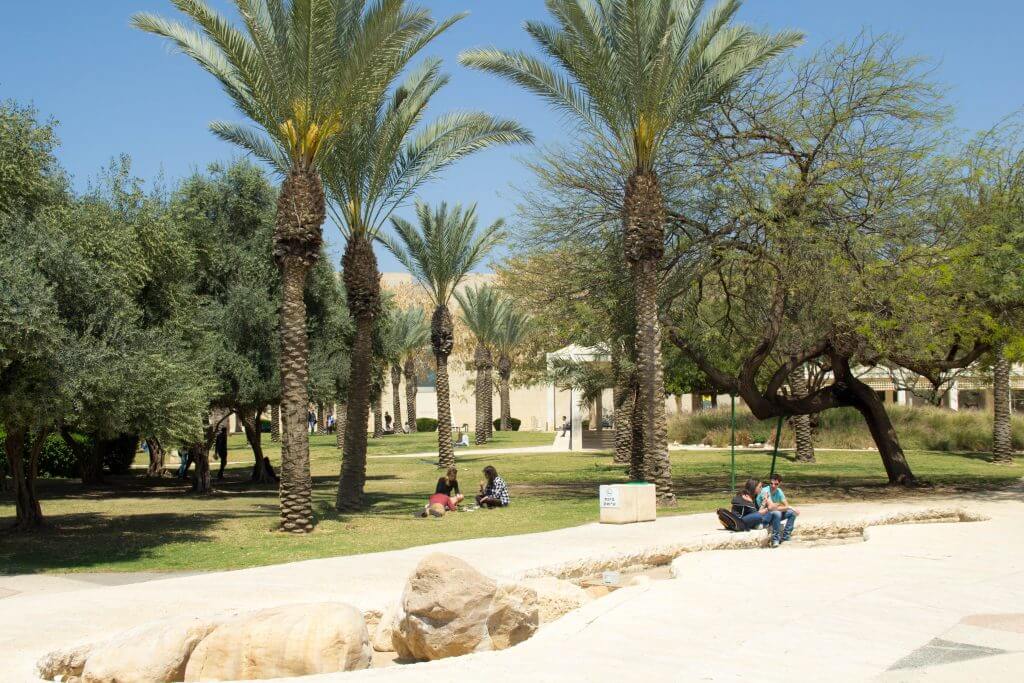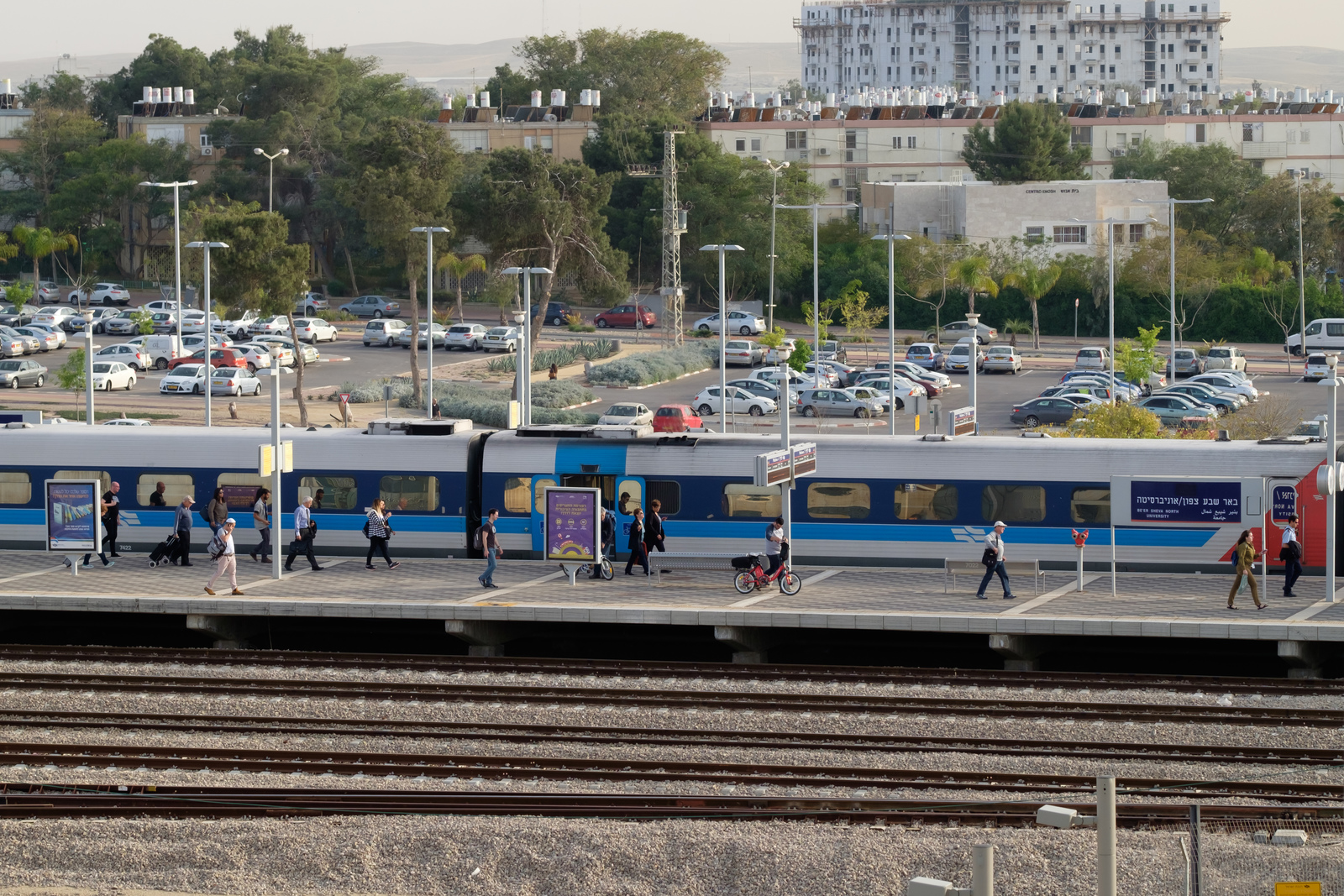BGU is located in Beer-Sheva, Israel’s fourth-largest metropolis and one of the oldest in the world. A diverse university town of 200,000 in the heart of the vast and beautiful Negev desert, Beer-Sheva is a place where the past and future converge: named “the Silicon Valley of the Middle East” by Forbes, it’s a cutting-edge, commercially vibrant city that’s also home to historical sites and ruins.
Life in Beer-Sheva

Things to Do
The Beer-Sheva area boasts magnificent scenery, and the city offers a wide range of cultural events and activities. There’s never a shortage of things to do in town, whether you’re visiting a museum, attending a concert, dancing, bowling, seeing a movie or simply going for a hike with friends.

Cultural Highlights
- The Negev Museum of Art, located in the renovated Turkish Governor’s House in the Old City, is the main art gallery in Beer-Sheva, with exhibits and lectures held regularly.
- Carasso Science Park is the largest science park in Israel, featuring an interactive museum, a scientific garden with games and hands-on activities for all ages.
- Abraham’s Well International Visitor Center is dedicated to Abraham, who lived in Beer-Sheva, and to the city’s Biblical connection.
- The Museum of Bedouin Culture features a collection of ethnographic material and artifacts documenting Bedouin ways of life in the Negev and Sinai.
- Engine 70414 (the Turkish Railway Station Museum) details the history of the Ottoman train station in Beer-Sheva’s Old City.
- The Cochin Jewry Heritage Center is a magnificent synagogue and museum located 15 minutes from Beer-Sheva in Nevatim, a settlement mainly populated by Cochin, India-born Jews.
- Light Opera Group of the Negev (LOGON) is an English-language amateur musical theater troupe that performs throughout Israel in early spring.
Nature
The Negev is part of an awe-inspiring desert that stretches from Egypt through the southern part of Israel into Jordan and Saudi Arabia. It is part of the 6,000-kilometer (roughly 3,700-mile) Great Rift Valley. With Beer-Sheva as a starting point, you can explore desert flats, sand dunes, desert pavements, cliff faces and deep canyons that stretch for miles. In the winter and spring, you’ll witness the annual blossoming of beautiful desert wildflowers.
Cycling
Cycling is a hugely popular pastime in Israel, and weekends see large groups of cyclists on and off the roads.
Shopping
Beer-Sheva offers a broad range of shopping options. In addition to four malls (the largest mall in Israel is located in Beer Sheva), the Old City hosts unique traditional markets, including the daily open-air food market, the Bedouin market (Thursdays) and the Old City Flea Market (Fridays).

Transportation in Beer-Sheva
Metrodan City Bus is the most convenient and affordable form of transportation for students in Beer-Sheva. As a student, you can purchase single-trip tickets, 11-trip cards or monthly passes. Schedules are available on Google Maps.
Taxis are another option, and many taxi companies offer 24-hour daily service (including Saturdays). You can call ahead or hail on the street for the same cost. The Gett app for iPhone or Android is an easy way to call a cab.
Of course, many MSIH students utilize bicycles, as distances are easily manageable, especially around the university and hospital.
Weekly Schedule
In Beer-Sheva, weekends begin early Friday afternoon and end Saturday night. Most shops and businesses close at 2 p.m. Friday and reopen on Sunday. University and government offices are open Sunday through Thursday only, although the campus remains open for self-study throughout the entire weekend.
Religious Life
Beer-Sheva has a diverse religious community. The city hosts over 200 synagogues, including two on the BGU campus. There are also a number of mosques in the area, including Tel-Sheva Mosque and Segev Shalom Mosque. Christian students can attend informal services held on Saturdays and Sundays in Beer-Sheva. Catholic services are held every Sunday and on Christian holidays in the Gimel neighborhood. The main teaching institution has a designated place of prayer for Muslim and Jewish students.
